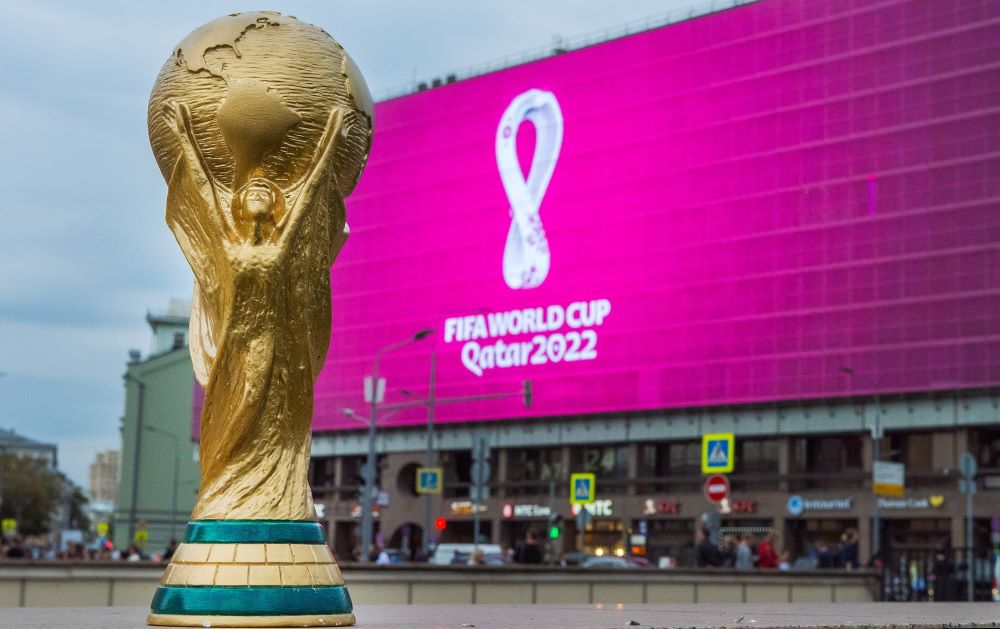DUBAI: The United Arab Emirates will offer multiple-entry visas to football fans at this year's Qatar World Cup, officials announced, as it looks to reap an economic windfall from the tournament. The UAE, whose jewel is the tourism-to-finance hub of Dubai, follows neighboring Saudi Arabia in opening its doors to supporters arriving for the first football World Cup in the Middle East. Fans with the Hayya Card issued to ticket-holders will be eligible for the 90-day renewable visas available for an initial fee of 100 dirhams ($27). "The program comes within the UAE's initiatives aiming to support the State of Qatar, in hosting the FIFA World Cup Qatar 2022," the official WAM news agency said. "Through the multiple-entry tourist visa options, the UAE will be hosting the World Cup fans, allowing them to enter UAE multiple times over a period of 90 days."
Qatar, with a population of 2.8 million and hosting the biggest event in its history, is expecting 1.2 million visitors for the November 20-December World Cup. With accommodation in short supply in the tiny but wealthy state, the overflow is shaping as an economic boon for Qatar's Gulf neighbors. Airlines Saudia, Kuwait Airways, flydubai and Oman Air will put on more than 160 daily shuttle flights for fans, allowing them to stay outside Qatar and make day trips to watch games. Last week Saudi Arabia, which is ramping up its tourism industry as part of efforts to reduce its reliance on oil, also announced multiple-entry visas for Hayya Card holders. Hotel and travel packages are on offer in the UAE for World Cup fans, including at a football-themed hotel scheduled for opening on the glitzy Palm resort -- a man-made island in the shape of a palm tree. Fan zones to watch the games are also planned for Dubai, where alcohol is more widely available than Qatar. The World Cup is shaping as a boon for Gulf countries less than two years after a bitter row split the region and left Qatar cut off from its neighbors. Saudi Arabia, Bahrain, the UAE and Egypt broke ties with Doha in June 2017, accusing it of being close to Iran and supporting extremist groups, accusations which Qatar denied. The three-and-a-half-year diplomatic, trade and transport blockade was only lifted in January 2021.




